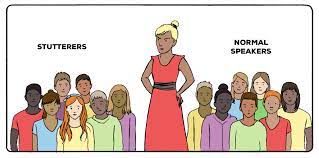On August 17, 2007, the United States was confronted with a disturbing revelation regarding a series of unethical experiments conducted on individuals with stuttering disorders. These experiments, conducted in the mid-20th century, aimed to find a "cure" for stuttering but ultimately caused significant harm and violated the rights of the participants involved.
Stuttering is a speech disorder characterized by involuntary disruptions in the flow of speech, often resulting in repetitions, prolongations, or blocks of sounds or syllables. In the mid-20th century, when limited understanding of speech disorders existed, researchers and clinicians sought to find ways to treat and alleviate stuttering through various interventions.
However, some of these experiments crossed ethical boundaries and caused immense harm to the individuals involved. One of the most infamous experiments was conducted by Dr. Wendell Johnson and his colleagues at the University of Iowa. Known as the "Monster Study," this experiment aimed to induce stuttering in children who did not initially exhibit the speech disorder.
The participants were divided into two groups: one group received positive and supportive feedback for their speech, while the other group was subjected to negative and harsh criticism. The intention was to determine the effect of such feedback on the development of stuttering. However, the experiment had severe psychological consequences for the children in the latter group, leading to increased anxiety, self-esteem issues, and even the development of actual stuttering.
The "Monster Study" was just one example of the unethical treatment of individuals with stuttering disorders during this period. Other experiments involved the use of aversive techniques, such as electric shocks or verbal abuse, to try to suppress stuttering. These methods not only failed to provide any long-term benefits but also caused significant psychological trauma and distress to the participants.
The revelation of these unethical experiments sparked outrage and led to a reevaluation of research practices and ethical guidelines in the field of speech pathology and psychology. It highlighted the importance of informed consent, the protection of vulnerable populations, and the necessity of conducting research with the utmost ethical considerations.
In response to these revelations, professional organizations and institutions established guidelines and standards for conducting research with human subjects. Ethical review boards were implemented to ensure that research protocols adhere to strict ethical principles, including the protection of participants' rights, safety, and well-being.
Furthermore, the exposure of these unethical experiments prompted a shift in the approach to stuttering treatment. Rather than focusing on finding a "cure," contemporary approaches prioritize the acceptance and management of stuttering, along with the development of effective communication strategies and support systems.
The events surrounding the unethical stuttering experiments of the mid-20th century serve as a stark reminder of the importance of ethical conduct in scientific research. They underscore the need for rigorous oversight, adherence to ethical guidelines, and a commitment to the well-being and dignity of human subjects.






